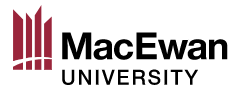As an economics major, you examine contemporary issues and topics from an economic perspective. You learn that economic principles and foundations are relevant at personal, community, national and global levels.

Economics is about much more than money and wealth. It’s about making the best use of resources and learning strategies for making effective decisions. In a way, everyone is an economist—from a child deciding which candy to buy to a country’s leader deciding how to support the nation during a pandemic.
As an economics major, you examine contemporary issues and topics from an economic perspective. You learn that economic principles and foundations are relevant at personal, community, national and global levels.
In this rigorous program, you sharpen your critical thinking skills and expand your mind. You also gain a strong grounding in the economic principles and theories needed in graduate studies or in a career in public, private and non-profit sectors.
What To Expect:
In the first two years of this program, you study the foundations of economics and basic economic principles. You also build your analytical skills through courses that focus on economic data management, analysis and interpretation.
Classes are a mixture of discussion and lecture, with opportunities to ask questions and explore relevant contemporary economic issues and policies. This format builds toward specific economic areas of study in the third year.
In your third and fourth years, you learn specific topics such as cost and benefit analysis, environmental economics, international trade and finance, money and banking, public finance and resource economics.
You engage in seminar-style classes for some of the courses, presenting to classmates and your professors. These formal sessions give you the opportunity to show your mastery of specific economic topics and research skills.
By the time you enter your fourth year, you have discovered various economic policy issues and topics that are of particular interest to you and gained the analytical skills to engage in insightful economic arguments and analysis.
You are able to apply these skills to relevant economic topics and make cogent economic arguments. In this final year, you apply what you have learned throughout your degree to a capstone project of your choice. As well, you have the option of completing a field placement course, working with an employer as an economist.
The Bachelor of Arts (BA) in Economics program requires students to complete 120 credits of non-duplicative coursework. In addition to the Economics Major, students will complete one of the following:
Students are required to complete option courses as well as the major(s) and minor(s). All BA degrees require Breadth Requirements. Courses can satisfy both the breadth requirements and requirements for the major(s), minor(s), or options.
The Economics Major is 42 to 60 non-duplicative economics credits with a minimum 36 credits at the senior-level. Students must complete a minimum of six ECON credits at the 400-level; ECON 401 and ECON 497 do not satisfy this requirement. Students may complete up to 3 credits of AEPS or URBW to fulfill the General Honours Requirements.
MacEwan University provides a transformative education in a collaborative and supportive learning environment. Creativity thrives here—through research and innovation that engage students, faculty and the community.
© 2025 coursetakers.com All Rights Reserved. Terms and Conditions of use | Privacy Policy